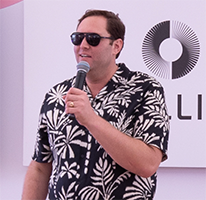AOL, one of the largest Internet service provide4rs in the U.S., has agreed to make sweeping changes in order to better respond to customer requests for service cancellations and refunds.
Attorneys general in 47 states — including California, Texas and the District of Columbia but excluding New York and Florida — reached a settlement with AOL after fielding numerous complaints about its billing practices, and in particular the difficulties consumers faced in dropping service from the Vienna VA-based provider.
The agreement will compel AOL to make $3 million in refunds to consumers who complained of unauthorized charges for service after discontinuing their AOL dial-up Internet service.
As more households migrate from dial-up to broadband, AOL has been transitioning from a subscription-based service to an ad-based portal model. Customer defections began increasing when AOL offered its e-mail and other services for free, taking away the justification for many users to keep the service. But the settlement revealed that subscribers who tried to cancel their AOL service sometimes met up with highly aggressive customer service reps who earned bonuses of up to $3000 for retained accounts. Some consumers complained that that monthly fees were still being deducted from their bank accounts or billed to their credit cards after they had supposedly cancelled service. Users were compelled to cancel their service by phone, fax or mail. “Consumers who called were put on hold or transferred repeatedly until they hung up in disgust,” Connecticut Attorney General Richard Blumenthal told the Associated Press.
As part of the settlement, AOL agreed to set up a Web site where customers can go to submit cancellation orders.
Another element of the settlement will force AOL to use only phone contact to create spin-off accounts, and to record those conversations for verification.
AOL did not admit to any wrongdoing in the settlement, which should avert an almost certain court battle.
In 2005, AOL agreed to pay $1.25 million to New York State to settle similar complaints. The company also agreed to change its billing procedures after the Federal Trade Commission started looking into those practices in 2003.
At the end of March 2007, AOL had 12 million subscribers to its dial-up service on plans costing anywhere from $9.95 to $29.95 a month, depending on terms.
 Network
Network

